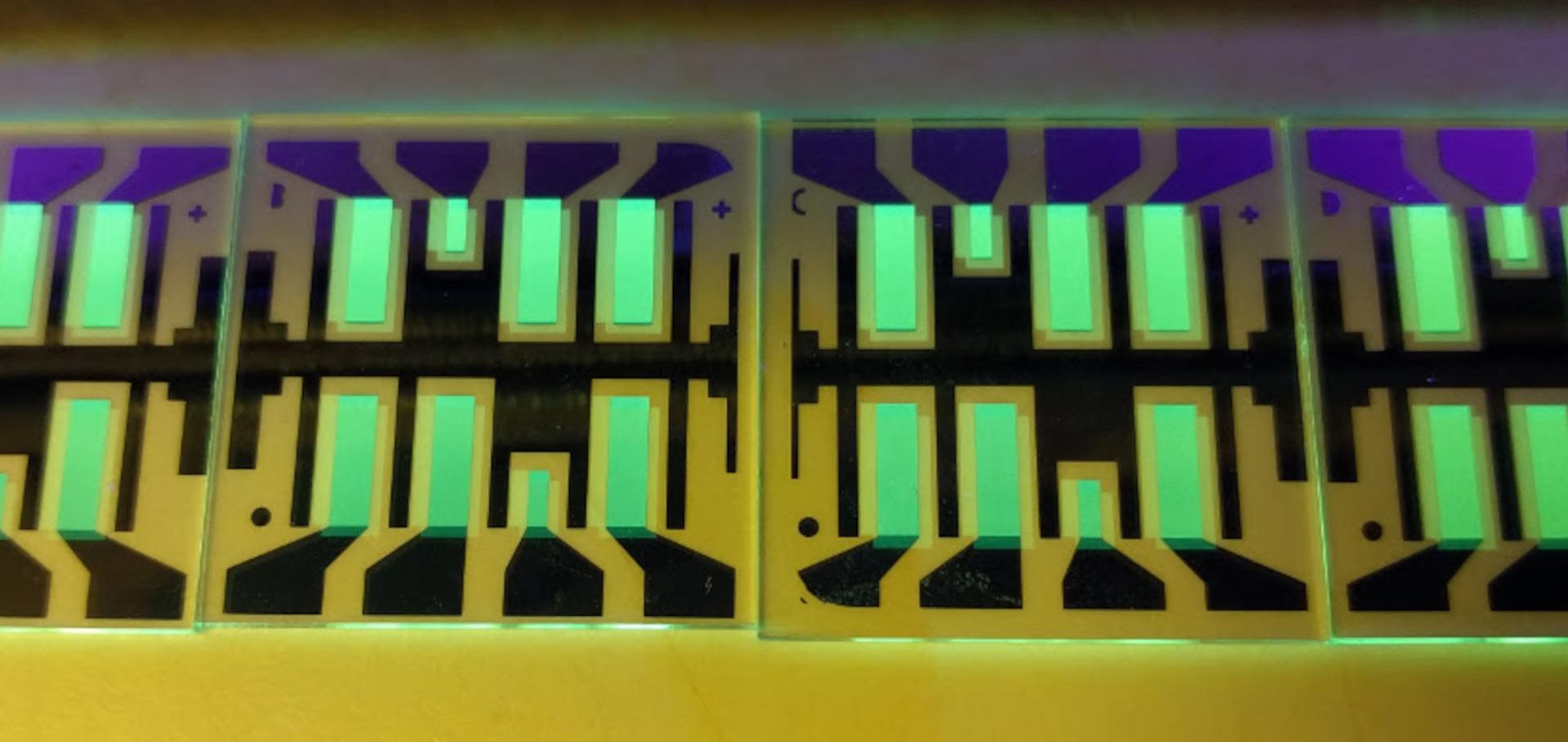My current research focus is on the investigation of advanced functional materials, in particular organic small molecules, for solar cell applications. All devices we make are processed by thermal evaporation of the materials in vacuum and the device architectures generally make use of molecular doping, i.e. the modification of a semiconductor's properties by a controlled addition of "impurities". Vacuum deposition and the concept of molecular doping have been two key enabling concepts for organic light emitting diodes (OLEDs) that can be found in displays of many mobile phones and have started to appear in large TV screens. Although much less used in organic solar cells, these same concepts can be applied to organic solar cells with similar benefits: high control of the composition and thickness of individual thin layers, easy access to multi-layer structures (e.g. for tandem devices) and the control over Fermi level and interfaces using doping. This is an exciting area of research and organic solar cells are one potential candidate for efficient, light-weight and flexible solar energy conversion at competitive cost. If these solar cells work well in the UK, they should work well nearly anywhere...

Credit: AFMD Group
Moritz Riede
Professor of Soft Functional Nanomaterials

